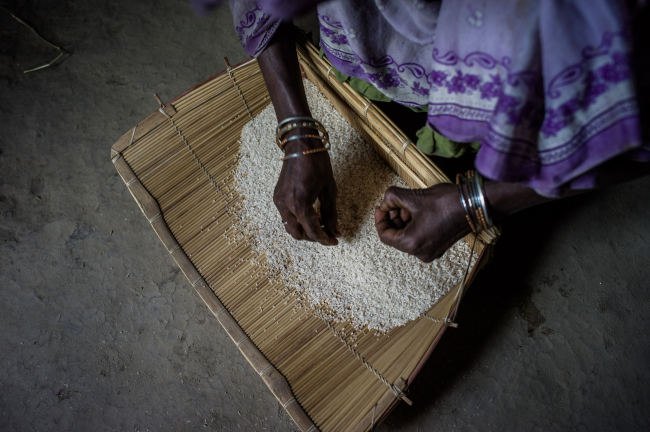Indian Prime Minister Manmohan Singh won a rare victory by passing a landmark bill through the lower house of parliament that expands the world’s biggest food program, a key plank of his party’s re-election strategy.
Frustrated by delays in parliament, Singh relied on an executive order last month to enact proposals that will give subsidized grain to two-thirds of India’s 1.2 billion citizens. Seeking to avoid the embarrassment of the order lapsing in the middle of next month, the minority government was able to pass the legislation in the Lok Sabha late last night with the support of other political parties. It still needs to be passed by the upper house, the Rajya Sabha, to become law.
“Our aim for the foreseeable future must be to wipe out hunger and malnutrition from our country,” Sonia Gandhi, the ruling Congress party president and a member of the political dynasty that has ruled India for most of the last seven decades, said in the debate in the lower house of parliament. Feeling unwell, she left the house and was checked by doctors at a hospital later last night, NDTV channel reported.
 |
A woman cleans rice in the village of Paltupur, Uttar Pradesh, India. (Bloomberg) |
With the passage of the bill months before elections, Singh will have a defining piece of legislation to woo rural voters in his second term as economic growth slowed to a decade low and the rupee lost a third of its value in the past five years. Weakened by corruption scandals and the loss of allies, the coalition government headed by Congress has passed the fewest number of bills ever by an administration sitting a five-year term. Polls are due by May.
Singh has been betting on the passage of the bill to meet a pledge to spread the benefits of growth to India’s poorest. The plan involves spending about 1.25 trillion rupees ($19.5 billion) in subsidies each year at a time when the government is running budget and current-account deficits. The local currency has weakened 32 percent since August 2008, according to data compiled by Bloomberg.
The bill aims to reduce hunger where two decades of the fastest economic growth in India’s history have failed to dent malnutrition. More than two-thirds of the population eats less than the minimum targets set by the government. The country has the highest percentage of malnourished children in the world after East Timor, according to the 2012 annual Global Hunger Index.
The current system for distributing subsidized food to the poor is riddled with theft and inefficiency. Only 41 percent of the food set aside for feeding the poor reached households in 2005, according to a World Bank study released in 2011. (Bloomberg)








